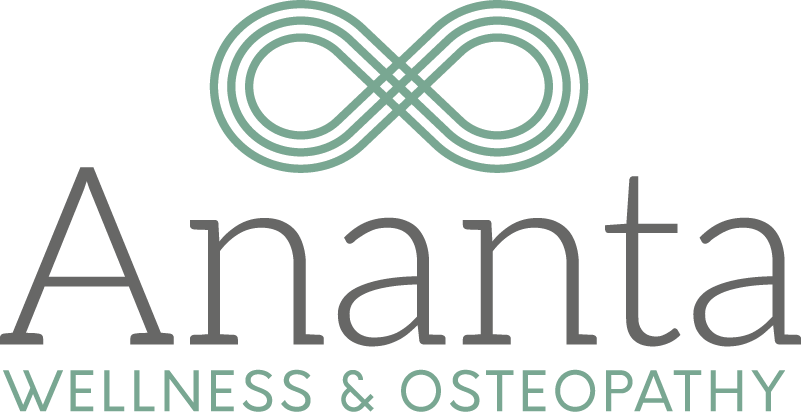Importance of taking a case history
Your Osteopathic Practitioner will ask many questions in your initial appointment to get a better understanding of how all your body systems are functioning, in order, to properly address the root cause of your symptoms. Aspects of your life, which you may or may not be aware of, may be contributing to your situation will be explored as these maintaining factors might be preventing you from improving and enjoying your best life.
An event, experience, accident that happened twenty years prior could have lead to you being more susceptible to injury. Sometimes the questions asked may not seem relevant to you but all you body’s systems are interconnected. Your nervous system can hold onto stress for a long time and may slowly start to present itself in other areas of your life. A common way your body shows this to you is by getting sick when you finally go on holiday and have time to relax.
Within this case history we explore areas like sleep or lack of it, energy levels and fatigue. These characteristics can be related to and increase physical pain as well as indicate an underlying dysfunction in any of your body’s systems including your nervous, endocrine, musculoskeletal and digestive systems.
Interconnected systems
Osteopathic practitioners treat holistically and endeavour to explore all possible avenues that may influence your sleeping patterns and energy levels. Your osteopathic practitioner can not only help by reducing physical pain that may be waking you up at night but by also may impact your nervous, endocrine, immune and circulatory systems.
When you are subjected to a period of continuous stress your adrenals can not keep up with your body’s demand for cortisol. This continuous stress can lead to burnout, severe fatigue, lack of sleep and an increase in physical pain. The reason such an array of different symptoms can happen from one change/disruption is because all the body’s systems are interrelated through hormones, nerves, blood supply, lymph, fascia and much more.
Severe fatigue, sleeping difficulties and widespread pain can lead to being told by your physician that you may have chronic pain syndrome, chronic fatigue syndrome or fibromyalgia – which can seem like an impossible task to overcome. Sometimes these conditions may be due to abnormal pain processing or central sensitization but often there is no known cause. Coming up with an accurate diagnosis can be tricky as there are many reasons/systems that are affected and often the whole picture is not taken into consideration.
Sometimes it doesn’t matter how much sleep you have you still wake up feeling tired, even after trying everything you’ve read (not eating a certain amount of hours before bed, not using technology before bed, changing your bed or pillow etc.) Often more self-exploration and looking deeper into all the different symptoms included, emotionally and spiritually, is what is needed to help understand and get to the bottom of your symptoms.
Overview of ‘fight or flight’ and ‘rest and digest’
Every physiological process in the body is controlled via the autonomic nervous system which can be divided into your ‘fight or flight’ response (sympathetic) and ‘rest or digest’ response (parasympathetic).
This is why when you are subjected to a short term threat/stress our sympathetic system kicks in by increasing our heat rate, tensing our muscles, restricting our digestive processes. All your energy is used to protect yourself. The sympathetic nervous system is meant to prepare us for this response but when we are put under chronic stress and it is continuously active we are not able to engage with our ‘rest and digest’ mode, which is what our body needs in order to heal.
The sympathetic chain related to all these physiological processes are located from the beginning of the thoracic spine (T1) and descends to the lumbar spine at levels L2/L3. Since the sympathetic chain is located next to the spine, where the ribs meet the spine, there are many ways in which your Osteopathic Practitioner can help regulate or decrease sympathetic tone – which will be talked about below.
The parasympathetic nervous system consists of fibres which exit at the brain stem via cranial nerves 3, 7, 9 and 10 and lower down than the sympathetic system through the spinal cord at the sacrum (S2-S4). The parasympathetic system controls your heart rate (decreases), salivary glands, digestion, sexual arousal, bowel and bladder habits – the processes are meant to kick in when your body is at rest. Hence when this system is not able to work efficiently it can lead to many changes not only with the nervous system but every system in the body. This is why not only cranial-sacral therapy but all osteopathic treatments, including work on the abdominal organs, muscles, joints, tendons, arteries and lymphatics can directly and indirectly affect every system and may help with sleep, fatigue and improving your quality of life.
The endocrine system consists of the glands that secrete hormones that control metabolism, growth, sleep, mood, energy, sexual function as well as other functions. This system includes the thyroid, adrenals, pituitary, pancreas, testicles and ovaries. Addressing the endocrine system, directly or indirectly, is important when trying to improve fatigue, sleep and energy levels.
How Osteopathy may help with sleep, fatigue, energy levels and decrease pain
Through a detailed case history and full body examination with your Osteopathic Practitioner, your main priorities will be apparent. Your practitioner will assess what is likely attributing to your lack of sleep/energy levels, fatigue and physical pain. Potentially many things may arise and it may be difficult to look at everything in your first visit.
If you are coming in because you have noticed a loss in your energy levels and difficulty sleeping you may attribute it to increased stress in both your work and/or personal life. Maybe you’ve had an increase in anxiety dealing with all the stress and possibly not coping. A change in bowel habits may have resulted i.e diarrhoea and this stress could have manifested itself as physical pain in your mid/lower back with the occasional headache. Due to the increased stress and busyness you may not have been able to exercise as much as you normally do, meaning your body’s blood and lymphatic systems are also experiencing blockages.
Your Osteopathic Practitioner will be able to treat you using a variety of different techniques depending on what is the most important/effective way to address the situation at the time. Working on your ribs through mobilizing/gentle techniques is thought help with the regulation of your autonomic nervous system by decreasing the sympathetic system. It also improves your breathing capacity which may be limited due to a physical restriction in the rib joints/surrounding tissues. Your Osteopathic Practitioner can work on all your systems to help improve your overall quality of life.
An issue with your organs for example can present itself as physical pain and/or a tender spot (not necessarily in an area near that organ). This could be a sign of organ dysfunction, an issue with your nervous system controlling the organ or a musculoskeletal dysfunction. For example maybe you have been getting shoulder pain which you thought was from lifting a heavy item and has been affecting your sleep and you are feeling exhausted. It is possible that this shoulder pain could also be a result of referral from one of your organs i.e pancreas.
Your Osteopathic Practitioner can help by working on your nervous system through gentle cranial-sacral/indirect techniques because you are in a heightened sense of stress or pain (sympathetically driven). The increase in sympathetic activity may inhibit insulin secretion from the pancreas which may lead to other health concerns. When your nervous system is in overdrive your body’s innate self-healing mechanisms cannot work adequately. As well as working on the pancreas, your Osteopathic Practitioner will assess and treat your shoulder, neck and thoracic spine. These structures may have a lot of muscular tension and joint restrictions as a result of being sympathetically driven. Treatment may help with pain, decreased mobility, stress, fatigue, sleep and overall well-being.
Having an awareness and understanding of how holding onto things can manifest in your body is important in learning how to manage your stress, sleeping patterns, energy levels and fatigue.
There are many ways Osteopathic Manual Practice may help you improve your sleep, fatigue and energy levels. If you have any questions or want to find out more please feel free to comment below or contact us.
Our Osteopathic Practitioners do not diagnose or practice medicine, nor do we attempt to treat disease. If you are concerned about any medical pathology and/or disease, always consult your physician prior to exploring Osteopathic Manual Therapy.

